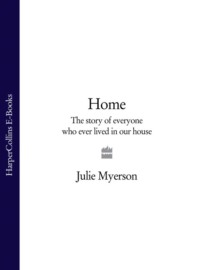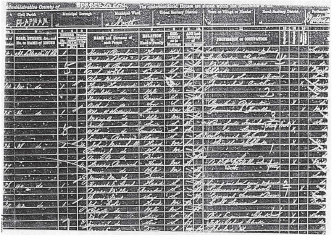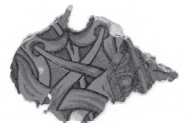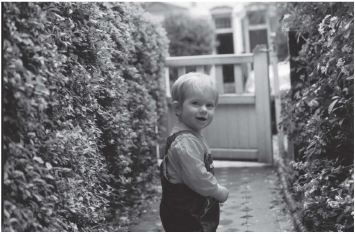
Home: The Story of Everyone Who Ever Lived in Our House

HOME
The story of everyone who ever lived in our house
JULIE MYERSON

DEDICATION
For
Elsie Hayward 1883
and
Jamie Jess Pidgeon 1984
LIST OF ILLUSTRATION
‘Do you know what a census is?’
‘the layers of paper curled and rolled off’
‘blonde and dimpled and dungareed’
‘my kids and their scary sharpness’
‘here she is again … cross-legged and tender faced’
‘he knows the snowman will melt’
‘you’d never in a zillion years let me have wallpaper like that’
‘you can’t possibly remember anything about being there’
‘she can’t talk or do anything yet’
‘hair all slept-on, reading a story to an absorbed toddler’
‘the sleepy-ecstatic time after the birth of a baby’
‘someone else has done the same, felt the same’
‘I didn’t think I’d float’
‘I lub you mummy’
‘I run my finger down column after column …’
‘the marriage was in a state and I wanted to be with my mum’
‘I bought that hat for two and six at Cecil Gee’
‘The wedding cake … costs £7.1 Os with the cake stand hired from Arding & Hobbs
‘eyes lit up with a hot, happy smile’
‘He wouldn’t drink out there on the street.’
‘those sleeves were murder!’
‘and Alice our duck’
‘Peter is family. He and Phyll were in a fix …’
‘I think the bit of trouble was me coming along’
‘She was just … a bit of a lass.’
‘Inside, the papers are crumbling …’
‘the plan shows a new street 50 feet wide …’
‘the hedge I pruned last Sunday.’
‘the white columns so familiar to me.’
‘Joan’s mother’s sister … married Thomas Spawton, Lucy’s nephew.’
‘on holiday in Felixstowe’
‘Did she come back here to 34 Lillieshall Road at the end of that hot day in the photograph?’
‘Maslin … he’s the first occupant of 34 Lillieshall Road.’
‘a lot happens to me there’
‘That man knew all there was to know on the various ways of cooking meat.’
‘like a boy who’s been in the dressing-up box’
‘like a boy who’s been in the dressing-up box’
‘They get talking one cold February day in the Larkhall Tea gardens’
‘You know Francis & Sons, the men’s outfitters opposite?’
‘The store was busy, fully stocked and gaily decorated for the busiest Saturday of the year.’
‘She’ll never forget all those beds’
‘forty-three years old … and she’s never had a young man in her life!’
‘she was my favourite aunt, you see, Aunt Bea!’
‘Outside the air is bright, sparkling.’
‘the car-free road of sixty years ago flashes into life in my head.’
‘That’s my grandmother, the very old lady …’
‘he hurries up from North Street, past the cottages.’
‘the sprightly little man with a juvenile wit’
‘It’s one of those lovely wide new roads near the common.’
‘I eventually find her. Or at least I think it’s her.’
Edith’s birth certificate
For the very first time, I’m looking into the eyes of a Hayward.
‘here’s the written proof’
‘He peers again at the picture. “Margaret Thatcher?”’
‘a grocer’s daughter called Mary Goodall Strange’
‘he fell in with a fast set’
‘he was singing in a choir’
‘when she died she was cremated in it.’
‘George’s views must have led to a few arguments around the lunch table’
‘It might have been the last match ever played at this piece of ground.’
CONTENTS
Cover
Title Page
Dedication
List of Illustrations
Chapter One CALLING OUT THEIR NAMES The Myersons since 1988
Chapter Two THE BOY IN THE TOTTENHAM HOTSPUR ROOM ThePidgeons 1981–1987
Chapter Three THE WRONG GERALD SHERRIF, THE RIGHT THOMAS KYLE, AND THE GIRL WHO TOUCHED SNOW Veronica and Doreen Ricketts, Alvin Reynolds, Gerald Sherrif, and Thomas H. Kyle 1976–1980
Chapter Four THE FORERUNNER, THE DREAMER, AND THE ONE NOBODY REMEMBERS The Jamaicans 1959–1975
Chapter Five THE WEDDING IN THE BEDROOM, THE BOY IN THE BATHROOM, AND THE LITTLE GIRL WHO SAT VERY VERY STILL The Blaines, the Bartolos, the Costellos, Patricia C. Reynolds, Rita Wraight, Olive Russell, and Mavis Jones-Wohl 1948–1958
Chapter Six WHY WON’T HE WRITE? The Povahs and the Askews 1944–1948
Chapter Seven SOME DIE YOUNG, OTHERS LIVE TO NINETY The Spawtons, the Hinkleys, Vera Palmer, and Beatrice Haig 1894–1944
Chapter Eight ELECTRIC LIGHT AND A SEWING MACHINE The Haywards 1881–1893
Chapter Nine RIDING HORSES IN BEDThe Maslins 1873–1880
Chapter Ten GRASS AND SILENCE Before 1871
P.S. Ideas, & Features …
About the Author
Dear Ms Myerson …
Life at a Glance
Top Ten
Appendix Chronological List of Residents
Acknowledgements
About the Author
Praise
By the Same Author
Copyright
About the Publisher
Chapter One CALLING OUT THEIR NAMES
The Myersons Since 1988
Last autumn I came home from the local archives library where I’d been trying to research a novel set in the nineteenth century.
‘You’ll never believe what I found out today,’ I told my daughter Chloë, ‘about this house and the people who lived here before us. I found out that in 1881 there was a writer and journalist living here called Henry Hayward –’
Chloë stopped on her way up the stairs and paused, hand on banister – a banister sticky with the marks of three children who don’t often wash their hands.
‘A writer? Just like you, you mean? Was he famous?’
‘I don’t know but listen, this is the good bit – he had a wife called Charlotte and three kids who were just exactly the same ages as you three are now.’
Chloë’s eyes widened. ‘Hey, cool! What were the kids’ names?’
I told her: Frank, Arthur, and Florence.
‘And Florence was my age?’
‘I think so, yes.’
‘Hmm … good names.’
Chloë swung round and sat on the stairs.
‘I wonder,’ she said, ‘how long since anyone shouted those names out in this house.’
‘You mean the way we shout for you to come downstairs?’
She nodded. ‘Yes, except we never do.’
I laughed.
‘A long time,’ I said. ‘Years and years. A hundred years at least, I suppose. It’s a funny idea, isn’t it?’
I watched her think about this. It was dusk on a chilly October evening. We carried on upstairs and stopped together on the landing. I had a pile of ironing in my arms. Chloë had blue ink scrawls all over hers.
‘I wish you wouldn’t write on your arms in biro,’ I said.
She ignored me and stepped over her cat Zach who was sleeping in his regular, hazardous position, draped right across the middle stair of the next flight up.
‘Shall we say them now?’ she whispered.
‘Say what?’
‘Their names. Shall we say them out loud because of how it’s been a hundred years and all that?’ She put her fingers on the fat white softness of Zach’s stomach. He opened one eye and closed it again. ‘Florence!’ she called shyly. ‘Arthur! Frank!’
‘Henry Hayward!’ I said more forcefully, and Zach jumped up and spilled himself off downstairs.
Chloë laughed. ‘You don’t need to say Hayward, Mummy. He knows what his own surname is.’
‘Charlotte!’ I called.
Our voices sounded strange, mostly because we didn’t know what we were doing or why we were doing it. Chloë looked at me and almost giggled but then checked herself. Her face went solemn and she listened. I listened as well. The house listened. Someone else seemed to listen too, but I still don’t know who it was. Maybe it wasn’t anyone. Maybe it was just the sense of the strong, clean lines of the present bending for a moment, going shaky and blurred. Whatever it was, for a few uneasy seconds I felt surrounded – not by people perhaps, so much as by moments, lost moments. Forgotten days and nights, lost hours, old minutes that had ticked away and would not come again.
Chloë shuddered, but it was a shudder of excitement.
‘Hmm. I liked that,’ she told me in her precise, Chloëish way. ‘Do you think they heard?’

‘Do you know what a census is?’
Later, putting the clothes away in his drawers, I found her older brother Jake, playing Super Mario Tennis.
‘I found out something good about our house today,’ I told him.
He rolled his eyes to show he’d heard, but kept them on the screen. Two grubby thumbs continued to work the control.
I touched his head then bent to kiss his hair. It smelled of boy – a heady combination of old jumpers and school dinners.
‘Do you want to know what it is?’ I said.
Still holding the control, he turned round. On the screen two blue men froze their less-than-friendly poses.
‘Do you know what a census is?’ I asked him.
He sighed and his eyes flicked back to the screen. ‘We did them at school. I know everything there is to know about them.’
‘Well, today I looked up our house on the 1881 census and guess who lived here?’
He put down the control and waited. ‘Who?’
‘A writer called Henry Hayward and his wife and three children – who in 1881 were exactly the same ages as you three are now!’
He shrugged. ‘Great.’
‘A family just like us,’ I told him. ‘Don’t you think that’s extraordinary?’
He seemed to think about this. ‘No.’
‘Come on, you’ve got to admit it’s a bit funny –’
‘How do you know they were like us?’
‘I don’t. But they sound like us.’
He sighed. ‘What were the kids called?’
‘Arthur and Florence and Frank.’
‘It’s sad,’ he said then. I asked him why. ‘I don’t know,’ he said. ‘Would any of them have slept in my room?’ He looked worried. He didn’t want anyone in his space – he hadn’t been keen when we did a house swap with New Yorkers two summers ago. A Victorian child pushing its spectral way in would be the last straw.
‘I don’t know. Yes, I expect so – they must have done.’
He picked up his control again. ‘Look, Mummy, I don’t mean this in a nasty way, but if you find anything else out, could you please not tell me?’
And then this happened. Two months later, on Boxing Day, in the odd, no man’s land that stretches from Christmas to New Year, we suddenly found ourselves with nothing to do. No one had invited us anywhere, we’d made no plans, we had no work to finish.
I found myself pacing up and down our hall in the fading light after lunch, a cardigan tossed over my shoulders and realizing something fatal, if only because I knew that now I would never be able to unrealize it.
‘It’s the wrong colour,’ I told Jonathan finally, ‘the hall and stairwell. Right to the top. I don’t know how I could have ever thought dark turquoise. All this time, I knew there was something. It’s just – well, I’m sorry but my heart always sinks when I walk in the door and now I know why.’
He was reading on the sofa. Or trying to. I snapped the uplighter on and he narrowed his eyes at me. He reminded me that he’d already painted the whole hall and stairwell twice (‘because you decided the lilac was a mistake too’) and asked me what day my period was due.
I threw myself down in an armchair. The whole room felt dark, oppressive. We’d painted it a chic, pale grey more than a dozen years ago, back when I was pregnant with Chloë. It was the winter that Thatcher went. I remember the joy of varnishing the bare boards on my hands and knees one winter’s day, the baby a fluid weight beneath me, while listening to the news on Radio 4. Every minute seemed to bring a fresh excitement.
Back then the dove grey walls had seemed grown-up, calming. Now they just looked drab. I thought I wouldn’t mind changing the colour of this room too. But I knew better than to say so.
‘OK,’ I told Jonathan, ‘you’re right. Forget it. The hall’s fine.’
He shut his book, calmly noting the page number. ‘I didn’t mean it like that.’
‘Three weeks. My period’s due in three weeks – OK?’
‘Three weeks?’ He looked suspicious.
‘I am definitely not pre-menstrual.’
‘What colour would you want it?’ he said.
‘I don’t know.’ I looked at him. ‘Pink?’
Raphael looked up from where he was sitting on the floor sticking football stickers in a shiny album. ‘I’m not living in a gay house.’
‘Blue’s fine, Mummy,’ said Chloë. ‘Relax. It’s just your hormones.’
‘The only way it would be worth doing,’ said Jonathan, who always warms to my plans in the end, ‘would be if we did it properly this time. That means stripping every single scrap of wallpaper off and then replastering and making good. No short cuts. Get a nice clean finish.’
I smiled. Because he likes his nice clean finishes. I’m not saying he’s wrong; it’s just that I will always sacrifice a nice clean finish for something more rapid and exciting – the instant, vivid gratification of a pot of paint slapped on a wall.
He saw my smile. ‘It would mean a lot of work,’ he warned. ‘You couldn’t rush it. We’re talking serious effort. Weeks of work.’
I smiled again.
‘The finish has always bothered me, actually,’ he said.
‘OK.’ I went and got a scraper from the cellar.
‘What are you doing?’
‘Starting.’
‘Now?’
‘Of course now. Why not now?’
‘You are a crazy woman. I don’t know why I live with you. You need the steamer anyway.’
He sighed and got up off the sofa. ‘I’ll get it. And the dust sheets.’
And that’s how we ended up undressing the very old lady that is our house. One dark, aimless Boxing Day, we started stripping her down to her most private, underneath self.
It was three o’clock, almost dark. It felt strangely moving and intimate, scraping the layers off – history unpeeling itself. There was a smell of dissolving paper, of oldness – the hiss of the steamer in the silence, the sight of naked walls. Even patches of mauveish, higgledy Victorian brick in some places where the plaster fell away in large, crumbling, worrying chunks.
‘Oh gross,’ breathed Chloë. ‘What’s all that hair?’
‘Horsehair,’ Jonathan said. ‘They used it to bind the plaster together.’
The odour was odd and sour. The kids fought over who did the scraping but, at thirteen, Jake was the only one who really had the strength to get much off. The light was fading so fast that Jonathan set up an Anglepoise so we could see what we were doing. A circle of white illumination in the misty gloom. It felt magnificent and formal, more like an archaeological operation than DIY.
And the layers of paper curled and rolled off and dropped onto the floor – and, quite perfectly preserved, half a dozen different patterns were revealed: imitation wood grain (the sixties?), brown zigzags (the fifties?) – then a bold Art Deco style in cobalt and scarlet (the twenties?). Under that, large Morris-style chocolate ferns and flowers, and beneath that a solid layer of thick custard-coloured paint, then a fuzzy snatch of long-ago roses, then another more satiny paper with tiny gold and mauve squares. Each layer – imperfectly glued, faded, merged – revealed another.

‘the layers of paper curled and rolled off’
‘What smells so horrible?’ said Jake, wrinkling his nose.
‘The glue, I think,’ Jonathan said. ‘Probably made from bones.’
‘Wicked!’ said Raphael and then, frowning, ‘But would vegetarians have used it?’
‘Weren’t really any vegetarians then.’
‘Just think,’ I said, as another William Morris-style lily showed us its black, almost funereally rimmed edges, ‘how long since anyone saw these patterns. I wonder when each one was covered up.’
‘Which one was the Haywards’ wallpaper?’ asked Chloë.
‘I imagine that’s something we’ll never know.’
But even a little information is seductive. Once you know names, you start to see things. It’s impossible not to – impossible to resist. I know almost nothing real of Henry Hayward but my imagination has already begun to whisper. And I admit it, I’ve begun to listen.
He’s tall, whiskery, gingery-haired (Hayward is definitely a gingery name). And maybe a bit of a punter, inclined to slope off to the races at Epsom or Goodwood, though he never loses too much – he has it in check. His wife Charlotte is much shorter, plumper and more self-effacing – a terrible worrier, especially about what other people say. Sometimes she thinks she only sees herself through other people’s eyes. Take away that critical, slightly warped perspective and she’s really not quite sure who she is – not that she’d ever think of expressing such a flighty idea to anyone.
Her ample figure is clad in brownish velveteen, the pile worn slightly thin around the bosom. She has a plain face, strong teeth (which she’s always been glad about), big thighs that always seem even bigger when she catches sight of them in the glass in the wardrobe door. She’s not well educated, doesn’t read much, and is always intellectually in thrall to her (she supposes) much cleverer and more artistically tuned husband. She tells herself this doesn’t matter, that she wouldn’t have it any other way, but some days it depresses her. Some days she can’t see a way forward, not even through this marriage. She calls these days her Glooms, though even to give them a name is overstating it, allowing herself a luxury she can only perceive as uselessly self-indulgent. She’s a happily married woman, for goodness’ sake. She worships at St John the Evangelist on Clapham Road. She believes in being content with your lot, especially if you can’t change it. She was quietly overjoyed when they managed to afford to rent this new, red-brick Clapham house in such a swiftly expanding neighbourhood.
Here she is now, carefully locking our front door with a hefty black key and stowing it in her skirts. Then moving solidly down our brown and cream tiled front path. Brushing past the very young laurel (now grown to a dreary spotted monster that blunts my secateurs every year). That’s her shadowy, tentative presence over there – hesitating in the space now occupied by our wheelie bin and green Lambeth recycling boxes.
The totter’s coming. She thinks she’ll let him have the old broken fireguard from the small room upstairs that they don’t need any more now that Frank’s left home. She pulls out her key and turns back, wondering whether to leave it till another day when Henry can lift it. But then Henry may stop her giving it away and she’s nigh on sick of all the bits and pieces they seem to store.
She waits, undecided – frozen on our path in a moment on a May morning in 1892. I have a photo of Jake aged two on that exact same piece of ground – blond and dimpled and dungareed – it now too seems to come from another time. Where did that small child go?

‘blonde and dimpled and dungareed’
But these are just a writer’s irresistible imaginings, not facts. What do I know? The totter may not have come that morning at all, and anyway the fireguard may still have been in use. And it might all have been quite the other way round. Charlotte might have been a quite different woman – shrill, sharp-tongued, wealthier by birth than her husband who, she never ceases to remind him, may be an author but is hardly a successful one. He’s yet to earn more than a few shillings from it. It’s pathetic, at his age – all very well to dub himself ‘author and journalist’ when the census man calls round, but when’s he going to get more than the odd article published in the South London Press? If it wasn’t for the money left her by her mother, they’d still be living out in the falling-down cottage in Deptford and would never have afforded somewhere so swanky and clean and new.
This summer, we’ve lived at 34 Lillieshall Road for exactly fifteen years. It’s a narrow, three-storey, slightly subsiding, dirty red-brick, mid-Victorian Clapham terrace with a mature, spreading hydrangea in front of the bay window and a glossy scented jasmine that climbs up past the front door to the first-floor window.
The bedroom windowsills each sport a wooden window box, made by Jonathan and painted hyacinth blue by me and filled with whatever flower I can keep alive each season. The paintwork around the windows is white and peeling. The bricks need cleaning but it would cost a fortune so, like everything else, we put it off. There used to be a lawn in front but now there are seaside pebbles, bought by the bagful from a place behind Clapham North tube station. It’s a stylish, romantic look but would be much better if we’d killed the weeds first. As it is, the dock and groundsel and nettles spring hopefully up between the pebbles. Shingle beach meets urban waste ground.
I am perfectly, unquestioningly, at home in this house. After a childhood spent moving house almost every year, I had told myself roots didn’t matter, that being with the people you loved was all there was. I think I even believed it. I used to brag about my lack of domestic continuity, my aloof and nomadic style. Until I met Jonathan. He lived in a terraced cottage with two cats, a full fridge, and honeysuckle round the door. He was only six months older than me yet somehow had managed to achieve this state of grown-upness, of stability and domestic warmth. I fell in love with the life as much as the man.
We decided to have a baby. And a joint mortgage.
Big things and small things have happened to me in this house. I became a mother here – once, twice, three times – and, later, a writer. Standing holding the phone in the far corner of the bedroom, I listened to my mother tell me that my father had sealed himself in his garage and killed himself. I was leaning against a wall that no longer exists because we made a door through into the bathroom. Downstairs in the hall, I had my final terrible argument with my younger sister and watched her walk away down the front garden path. I sat and trembled afterwards on the bottom step of the stairs.
Upstairs, at the top of the house, I wrote a novel in the spare bedroom. I wrote another two in the tiny room on the first-floor landing. I walked fretful babies up and down the bathroom in the dead of night and, pregnant and exhausted, I once lay down on the kitchen floor in front of two baffled toddlers and wept. A squirrel terrified us when it became trapped in the chimney in Jonathan’s study. It scratched and snuffled and panicked all day. A funny and beautiful friend ate pasta at our kitchen table and told me straight out that she was dying. I watched a terrified man jump from the top floor of the refugee centre opposite when it was on fire one scary summer night. Another time, another summer, a burglar came into our bedroom as we slept and rummaged through my handbag.